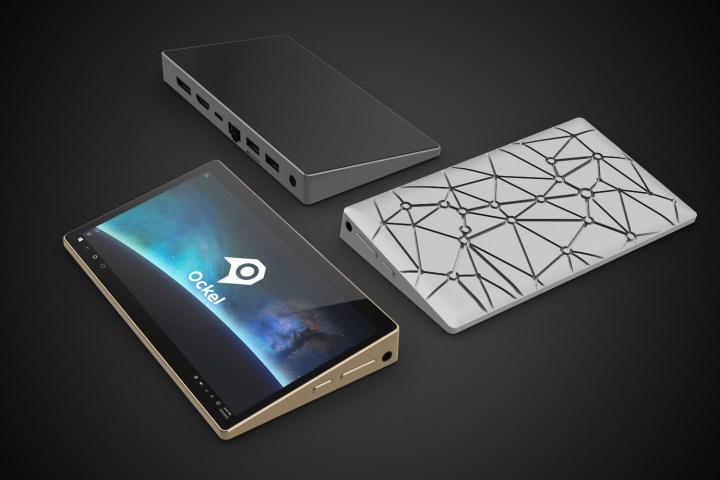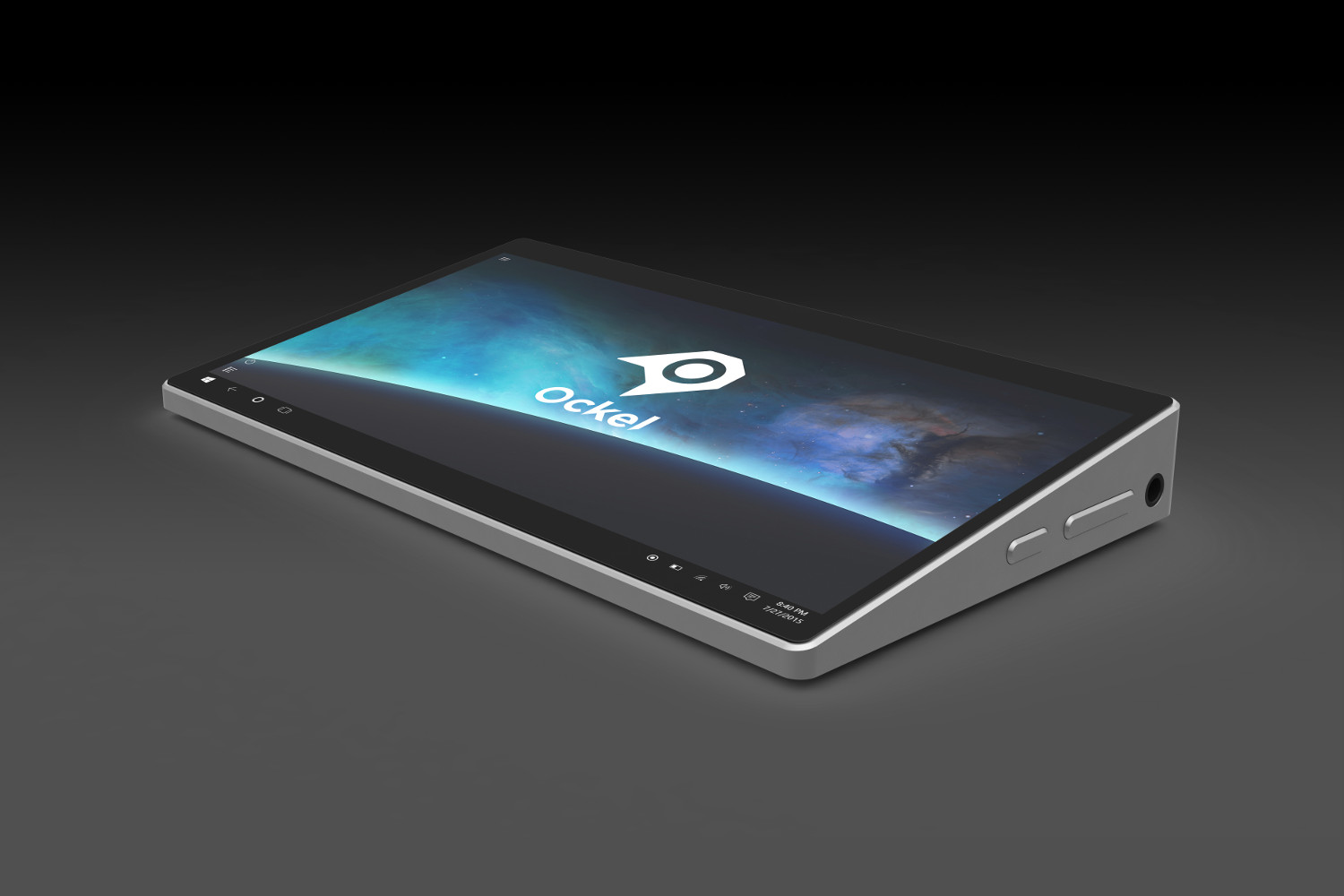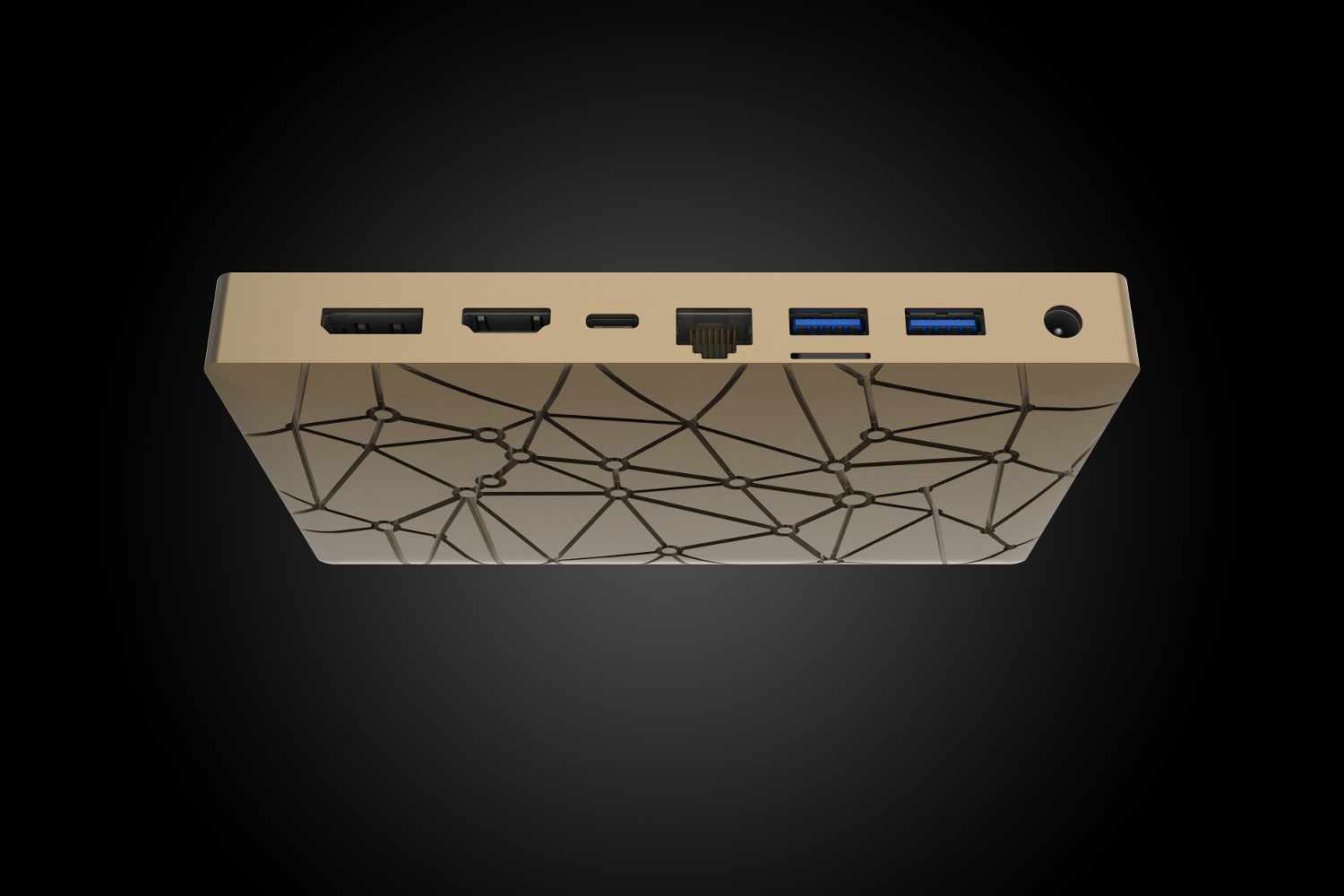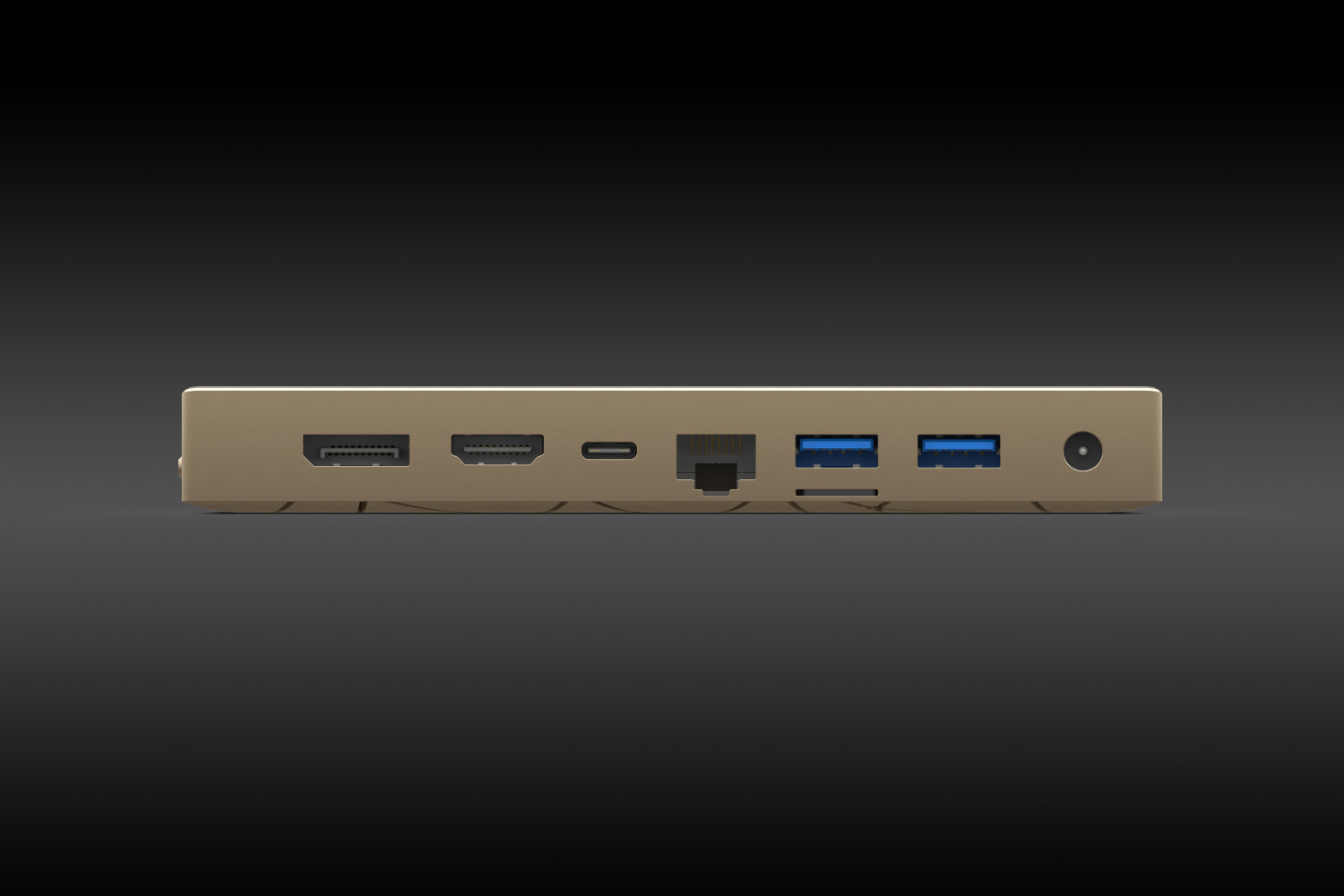
The Sirius A is the size of a large smartphone, and boasts a 6-inch full HD touchscreen and a battery capable of powering the device while users are on the move. The portable nature of the device was a top priority for Ockel, but the manufacturer wanted to make sure that it didn’t force any other compromises.
To that end, the architecture of the Sirius A is closer to a traditional desktop, rather than a smartphone or a tablet. This means that the device can run all x86 compatible Windows programs — despite its physical design, it’s a bona fide PC, for all intents and purposes.
The system is also outfitted with a wide range of connectivity options, something that Ockel identified as a deficiency for many smartphones, tablets, and hybrids. The Sirius A features two USB ports, HDMI, DisplayPort, a MicroSD card slot and a LAN port.
“We want to give users a real desktop experience, with the benefits of a mobile device,” said Tim Haaksma, the founder of Ockel. “We see the desktop and mobile market growing toward each other. The Ockel Sirius A is a one-of a-kind blend of desktop and mobile.”
In 2015, a hugely successful crowdfunding campaign facilitated the development and release of Ockel’s first two products, the Sirius B and its Black Cherry variant. The company has since inked an exclusive partnership agreement with Indiegogo, which will underpin the upcoming campaign for the Sirius A.
Ockel hopes to raise $250,000 over the course of the campaign, which will get underway in September.
Editors' Recommendations
- These recent PC cases make me excited for what’s next
- These PC fans took almost a decade to make, but they might be worth the wait
- Even without the RTX 4090, Nvidia is making building a PC much more expensive
- AMD Ryzen 7000 makes PC building much less intimidating
- Vulkan 1.3 makes it easier to port PC games to mobile devices







